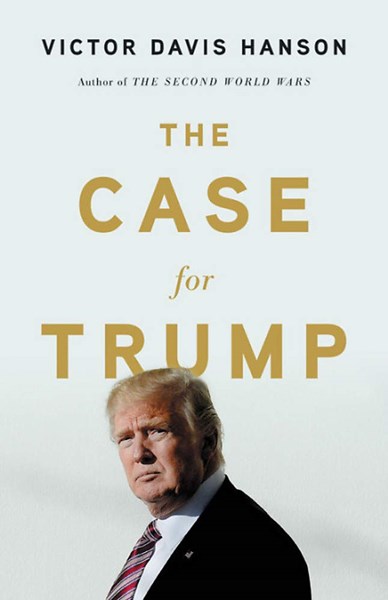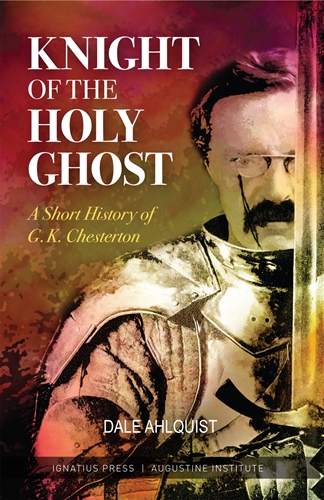
The Case for Trump, by Victor Davis Hanson (New York: Basic Books; 400 pp., $23.99). It is expected of an author that he say something new and big about someone or something new and big, even should it have been so for two years already. President Trump remains something new and big, though his detractors by now appear old and small. Professor Hanson’s book is both competent and comprehensive, but it has little if anything new to say about its subject. This is too bad, since of all its dramatis personae only Trump is really of interest; largely because American politics on its left wing is increasingly tyrannical, and nothing is more boring to read about than tyranny and tyrants, though living under them is usually not boring at all. Fortunately, we in America have not yet come to that, though if plenty of Democratic politicians had their way we should have already, shortly after Donald Trump had been guillotined on the Mall in front of the Lincoln Memorial.
A further difficulty with this book is that it is, unfortunately, mistimed. The winter of 2019 has been shaping up as a politically slack period, not only in the United States but also in the United Kingdom, France, and even Italy, where political paralysis has set in over immigration, Brexit, the gilets jaunes, and Rome’s relationship with Brussels. Victor Hanson should have held off until a year or so before November 2020 and taken advantage of the coming suspense by releasing his book at that time. But yes, there is indeed a case for Trump, there always has been, and there always will be. And Mr. Hanson makes that case very well.

Knight of the Holy Ghost: A Short History of G.K. Chesterton, by Dale Ahlquist (San Francisco, CA: Ignatius Press; 208 pp., $16.95). I had not realized before I read this excellent little book how very big Chesterton was in his day: how widely and well he was known and read, how often he lectured and in how many places and venues, how many of the famous people of his day he met and knew. As Dale Ahlquist notes at the beginning, his reputation declined immediately after his death and suffered eclipse for many decades, until relatively recently. It is the case with many writers that death is followed almost instantly by near-oblivion, though not often as near as Chesterton’s. Perhaps the war that followed only three years later had a good deal to do with this, and next the postwar era that amounted almost to a new and wholly different world. If that is indeed the case, it is likely that as this new world ages in turn it takes on more and more the qualities and characteristics of the fin de siècle one into which Chesterton erupted. Ahlquist notes that the salient qualities, features, and problems of the 21st century bear a remarkable similitude to those of the early 20th century, as the following quotations suggest: “Satire has weakened in our epoch for several reasons, but chiefly, I think, because the world has become too absurd to be satirized.”
“Freedom of speech means practically in our modern civilization that we must only talk about unimportant things.”
“The mere strain of modern life is unbearable; and in it even the things that men do desire may break down; marriage and fair ownership and worship and the mysterious worth of man.”
“A strange fanaticism fills our time: the fanatical hatred of morality, especially of Christian morality.”
“There will be more, not less, respect for human rights if they can be treated as divine rights.”
“If Christianity needs to be ‘new,’ it does not need to be Christian.”
Dale Ahlquist is so steeped in his subject—his friend, the man Chesterton and his work—that they often seem like one and the same person, and one and the same writer; so much so that it is necessary, when reading his book, to pay exquisite attention to quotation marks, or their absence. Or perhaps is makes no difference which author one is reading at any given instant, so completely are their ideas, their mental processes, and even their locutions merged. For this reason Knight of the Holy Ghost—whose tripartite text is divided up between “The Man,” “The Writer,” and “The Saint?”—is among the very best books about G.K. Chesterton I have ever read.
The final section, which makes the case for sainthood, is persuasive, but finally beside the point. It seems to me that Catholics argue overmuch about who is and who is not a saint; any man or woman who succeeds in attaining Heaven does so only by becoming saintly. As Evelyn Waugh put it, there was only one way for him to get to Heaven and that was by becoming St. Evelyn. In any event, I am not aware that Chesterton has been credited with any miracles. On the other hand, the Bishop of Northampton has announced that he was preparing to create an investigation for him. Still, even should the requisite two miracles come to light, they would likely amount to confirmation, not proof, of an existing fact.
Leave a Reply